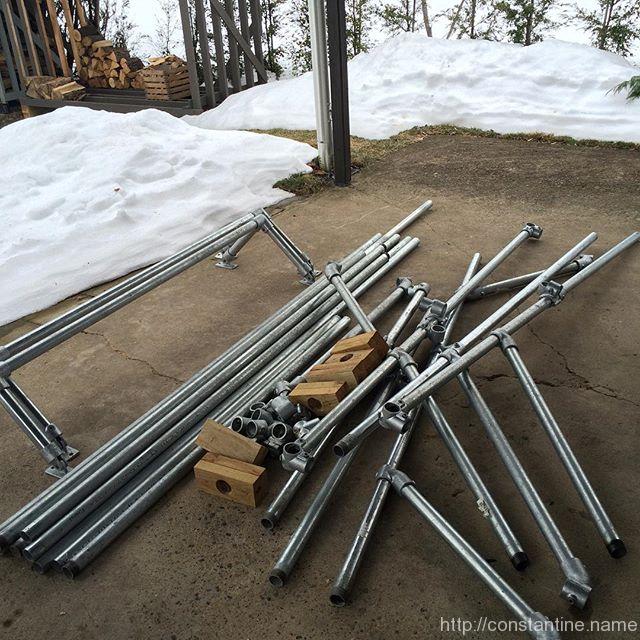The Fourth Rule of the Artist’s Journey is: It’s for life.
~ Steven Pressfield, from The Artist’s Journey Is a Lifetime Engagement
slip:4usete19.
Because that means there’s not going to be an end, so I better get my stuff sorted.
ɕ
The Fourth Rule of the Artist’s Journey is: It’s for life.
~ Steven Pressfield, from The Artist’s Journey Is a Lifetime Engagement
slip:4usete19.
Because that means there’s not going to be an end, so I better get my stuff sorted.
ɕ
What are the key considerations for creating an engaging and impactful podcast, particularly regarding audience connection, episode length, and content strategy?
Danny Bauer reveals the strategic pivot to shorter podcast episodes, fueled by listener analytics, to redefine engagement in digital storytelling.
[The takeaway from the analytics was] people weren’t along with me. The super consumers— the super listeners— the super ruckus–makers weren’t. That’s what I call my audience. But at the end of the day, it’s a gift—it’s in service to the listener. Even though I would prefer to go deeper and longer, if people aren’t really consuming that, and growing from it, and enjoying that, then what’s the point? In some sense, I’m wasting my time.
~ Danny Bauer, 3:19
Danny Bauer is keen on optimizing his podcast episodes by tailoring them to better match the preferences of his audience, aiming for increased engagement through format adjustments. He highlights the significance of clearly identifying and naming one’s audience to ensure the content resonates deeply and meets their specific needs.
In life, you’re either a mercenary or you’re a missionary. Mercenaries are going to fight. They’re going to be scarcity minded. Craig has to lose for Danny to win, right. They’re going to compete in the same area, which is called podcasting. Or you’re a missionary and you’re generous, you’re abundant, you do the work even if you’re getting paid or even for free, right. And that’s what I’m doing with school leaders. With the free coaching, it’s because I’m a missionary. It’s about advancing the idea, the category, what we’re putting out and changing the world for the better, versus something that’s just for me.
~ Danny Bauer, 29:50
In his work supporting educators, Danny is committed to offering resources and strategies that bolster leadership skills, fostering a supportive network that empowers school leaders to navigate the complexities of their roles with confidence and innovation.
Takeaways
Optimization of episode length — the strategic shift to shorter podcast episodes, revealing that listener analytics show higher engagement for episodes under 20 minutes, leading to a content structure pivot.
Naming the audience — the importance of explicitly naming the audience to tailor the podcast’s content more effectively, enhancing connection and relevance.
Supporting educators — commitment to aiding educators, focusing on leadership development and community building to address the challenges faced by school leaders.
Resources
Better Leaders, Better Schools — Danny’s web site with information for school leaders, links to his podcast, blog and more.
Danny Bauer on LinkedIn.
Naming our Audiences — Inspired by this conversation with Danny, I started a conversation around how to name our audiences. ~Craig
(Written with help from Chat-GPT.)
ɕ
Who shall decide when doctors disagree, and sound casuists doubt like you and me?
~ Alexander Pope
slip:4a1367.
The passage that follows is from a book I’m working on right now. I’m not sure the passage works for a Writing Wednesdays post, but what the hell, I like it and my instinct tells me to put it out there.
~ Steven Pressfield from, The River
slip:4usete10.
I do have certain distinctly imprinted “passages” from my own story. No, it’s not story-time today. Upon reading Pressfield’s comment (and the passage) I was left wondering what was the critical feature (or features) of my own passages which made them indelible. It certainly wasn’t receipt of accolades or actual accomplishment. It certainly wasn’t that a passage began with a grand vision or even a coherent plan.
I hope you weren’t expecting me to have an answer… this blog is, after all, just me working with the garage door up.
ɕ
… there are two ways to go through life, as a thermometer or a thermostat. Don’t be a thermometer, just reflecting what’s aound you, going up or down with your surroundings. Be a thermostat and set the temperature.
~ Cory Booker
slip:4a746.
CREATE SPACE BETWEEN THINGS — “Add padding to everything. Do half of what you imagine you can do. What would it be like if we did less? What would it be like if we padded how long things took, so that we have the space to actually do them well, with full attention? What would it be like if we took a few minutes’ pause between tasks, to savor the accomplishment of the last task, to savor the space between things, to savor being alive?” ~ Leo Babauta
How good is your memory? What’s the first food you had after waking eleven days ago? Perhaps, your memory isn’t _that_ good. How about something you are currently interested in: 11 days ago, did you have any insights from your morning reflection?
ɕ
Arrived in the middle? Visit the first post, Where to begin?
(The entire series is available to download as a PDF ebook.)
If someone were to ask me to identify the single primary quality that an artist or entrepreneur should cultivate in himself, I would say depth of commitment. Because depth of commitment either embodies all the other virtues or establishes the fertile field in which they can take root and grow. Depth of commitment presupposes courage, passion, recklessness, capacity for self-discipline, and the ability to have fun. It implies perseverance.
~ Steven Pressfield
slip:4a916.
Commitment doesn’t increase in a smooth fashion. One moment things are as they are, and then you catch a glimpse of how they could be. A glimpse of how they should be… how they must be! When it happens, it’s like cresting a hill after a long walk up a tedious slope. In a flash you forget the thousand gnats and brambles you endured on the climb. There’s nothing for it but to charge down the hill into the valley. This is the valley. This is the solution. This is the way the work should have been done from the beginning. You ignore the shadow which you can clearly see lies at the very bottom of the valley. You ignore the far slope certain you won’t have to climb that hill. Surely nothing better could be found beyond. Surely all the work of all those previous hills was worth the effort to reach this valley.
Right?
ɕ
… the microbes are holding the reigns to a lot of what’s going on. If we were not doing a good job at passaging them around to additional culturing flasks — specifically other humans — they would undoubtedly discover ways to make us better at doing that.
I think a more optimistic, or different way to frame this, is just that we’re composite organisms. I think we traditionally think of ourselves — the human body — as a collection of human cells. And what we really are is an ecosystem. We have microbial and human parts that come together to work in a concerted fashion to make up this
super-organism. And we can’t forget about the microbes because they’re really an important part of our biology.~ Dr. J Sonnenburg from, Is a Disrupted Gut Microbiome at the Root of Modern Disease?
slip:4uciia1.
If you haven’t heard much about how important are all the teeny little microbes living in your digestive track, this is a good podcast to get started.
ɕ

Mom’s house is done!! Closing date is set, movers are scheduled…
ɕ

Had to completely break it down to get it back to my patio. I was going to just reassemble what I had before, but now I’m wondering what new shenanigans I can set up… I recall some cool railing-esque stuff I wanted to work on.
ɕ
I recently (2015) discovered Dr. Eades blog. (I had not heard of his books.) His blog contains a wealth of medical science explained in layman’s terms. The first few articles I read convinced me to start at the beginning of his “blog archive” and try to read HIS ENTIRE BLOG. I quickly learned: He has a lot of personal and current events posts which I’m not interested in, and there’s way way too much get through in short order.
Everybody seems to agree that Congress doesn’t work.
If you’re liberal, you’re appalled that even something like universal background checks for gun purchases (90% public approval!) can’t pass. If you’re conservative, you’re horrified that nothing can be done about the mounting national debt or the projections for exponential growth in entitlement spending.
And even if you care not at all about parties or ideologies, it’s just embarrassing to watch our leaders create one artificial crisis after another. We’re the richest country on the planet, and yet we’re constantly threatening to shut down our government, default on our bonds, mint a trillion-dollar coin, or do some other weird thing that would shame the generalissimo of a banana republic.
Is this any way to run a super power?
slip:4uwewa1.
ɕ